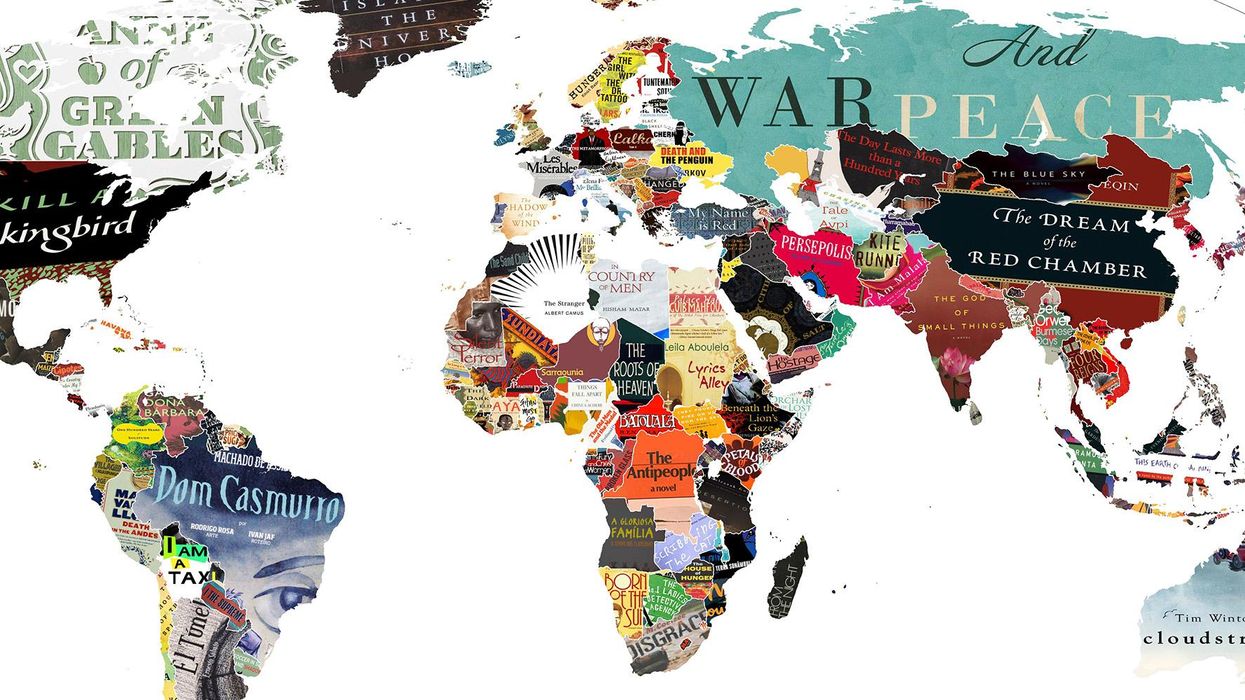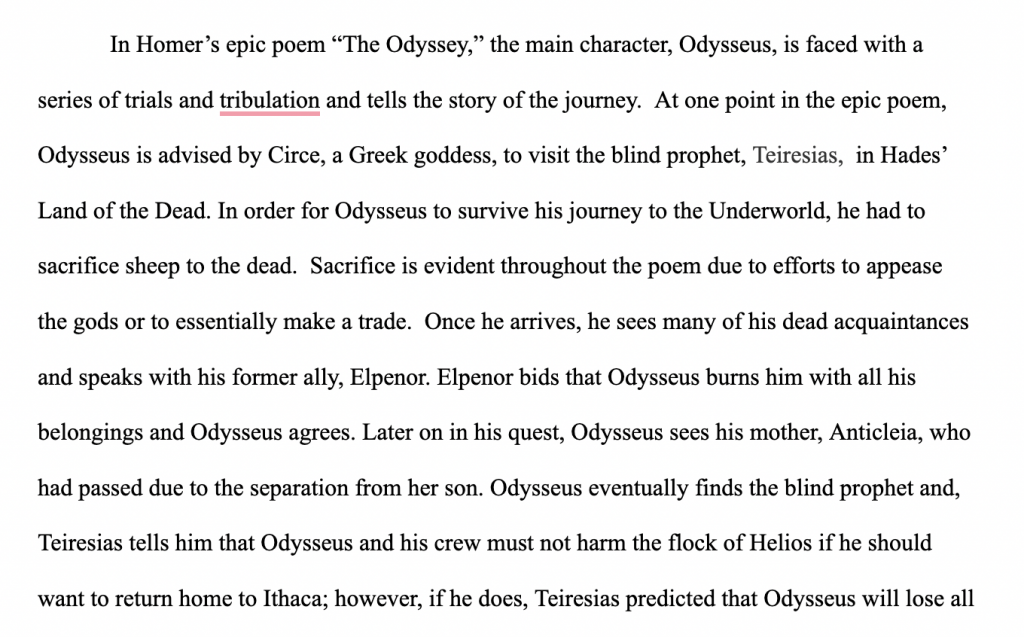Reflection:


Literature Example 1: January 2022

Literature Example 2: March 2022

During this semester, I took the World Literature and Cultures course and I learned more than I expected about analysis. My class read an abundance of short stories that we had to analyze and scan. In the previous semester, I had taken English 110C which helped me build the base I needed to write an accurate analysis essay. However, I still struggled sometimes with which words to use that stress analysis. After a series of blogs that analyzed the short stories I had to read, I was better able to break down a story or a poem into its parts and analyze it thoroughly. I also had an issue with depending heavily on quotes rather than paraphrasing and scanning for sentence structure. In the WCS100L course, I broke away from the habit of depending on quotes to guide my essay. I did this through a lot of practice and collaboration with my fellow classmates. I realize that I spent of my time analyzing the quote rather than the entirety of the text itself.
Artifacts

In my Philosophy class, we were often assigned to read about old religions and modern religions, then given the task to summarize and analyze what we read. At the beginning of the semester, my first paper was about the Odyssey. I recalled reading the story in high school but I did not have a good memory of what it was about. My professor gave us a portion of the story to read and I summarized it in my essay. While my summary was good, I forgot to use any analysis within my essay. I received an 80 and my professor gave me feedback on what I missed. I read what I needed to do to receive a better grade and how to better analyze a religion. During the middle of the semester, my grades improved through asking more questions about anything I was confused about, especially on interpreting the text. Also, I looked back at PowerPoints which had some of the answers to the analysis portion. This essay was not my best grade in this class but it helped me figure out what I needed to work on to become successful.
Exploring Culture

The practices that helped me gain an understanding of cultural perspectives are through going to GSF (Global Student Friendship). I learned a lot from friends with different backgrounds and cultures, but this semester I stepped out of my comfort zone to learn something new. I became a part of GSF to have a new perspective of world cultures. Every week we had someone from a different culture teach us about their customs and traditions. We also ate their food and learned some of their languages. I value this experience because it gave me the opportunity to grasp other cultures and to take what I learned so that I can apply it to my community outside of Norfolk.
I better understood Hispanic culture through one of the presentations done at a Friday dinner. We had two Latin American speakers who shared their culture and experiences. Their practices challenged my worldview because their views were different from mine. For example, one person mentioned that in their community people were allowed to go anywhere to have a hot meal, yet in America it’s different. Americans usually stay to themselves, while other countries in Latin America base their community on helping each other. It made me realize that some Americans need to overlook the stereotypes they have about Latin America and rip a page from their book about hospitality.
Engaging in Communities

I believe that engaging in my immediate community and the global community is very important because it enables me to better understand others. Ever since I was a child, I knew how to empathize with others and for others through volunteering with the homeless. Currently, I have been involved in my community by cleaning up plastic and volunteering through GSF. GSF helped me network, mainly understand different belief systems, due to people being from different countries. These experiences helped me be more aware of my community and the people within it. It also helped me figure out how I can make a better future for younger generations that are faced with difficulties.
Presentational Writing

This semester I did not have much presentational writing, but I did do investigar and I shared my findings with the rest of the class. I felt comfortable explaining my findings in English, but sometimes I would try to challenge myself and translate what I wrote in English into Spanish since it was only a few sentences.
It became easier to translate throughout the semester as I learned more vocabulary. It was difficult for me to speak in the subjunctive at first, but as I continued to practice my phrases became better. I also had difficulties remembering how to conjugate in the preterite because I had confused it with a different tense. I became better through studying the preterite and repeatedly writing it down. I excelled in the imperfect because it seemed simple in my mind. I could do better next time by studying far ahead of time.
Interpretive Listening
When I had to do TalkAbroad this past week, I recall having difficulty comprehending what Jessica was saying when she was explaining a story that happened within her family. She had to repeat the words a few times with signs to help me understand what she was saying.
For example, during this conversation with Jessica for the third TalkAbroad conversation. We were talking about stories within our families. It was mainly stories that had been passed down from generation to generation. The word “terremoto” threw me off in this conversation because I could not interpret what the word meant. At first I thought the word meant a train. However, Jessica was very helpful in using descriptions to help me comprehend what she was saying. I found it interesting that she used this story because it was a historical account that happened in Guatemala. My main takeaway from this listening experience is that context clues and descriptions help a lot when someone is learning a different language. I might use this technique if I ever come across TalkAbroad again. I have grown from each activity through learning new words from different countries and better understanding context clues. TalkAbroad has given me more confidence when speaking in Spanish even if somethings that I say are not correct.
Interpretive Reading

When we would read El Guardian de Las Palabras in class, I recall having to reread what Professor Mitchell was saying because I wanted to have a better understanding. I am more of a visual learner than an auditory learner which means that I do better with a book in front of me than if it’s being read to me.
The biggest challenge for me was reading and comprehending what was read to me at the normal pace in Spanish. I still have an issue with this but it did help when Professor Mitchell had the book on screen so that I could read some of what she was saying. I found the adventure that the boy went on interesting because it delved into a fantasy world I had never heard of. But it did partially remind me of Alice in Wonderland. My main takeaway from this book is that a person’s imagination can do wondrous things. I have grown with each assignment, especially this semester through TalkAbroad. I am not 100% fluent in Spanish, but I do have more confidence when speaking.